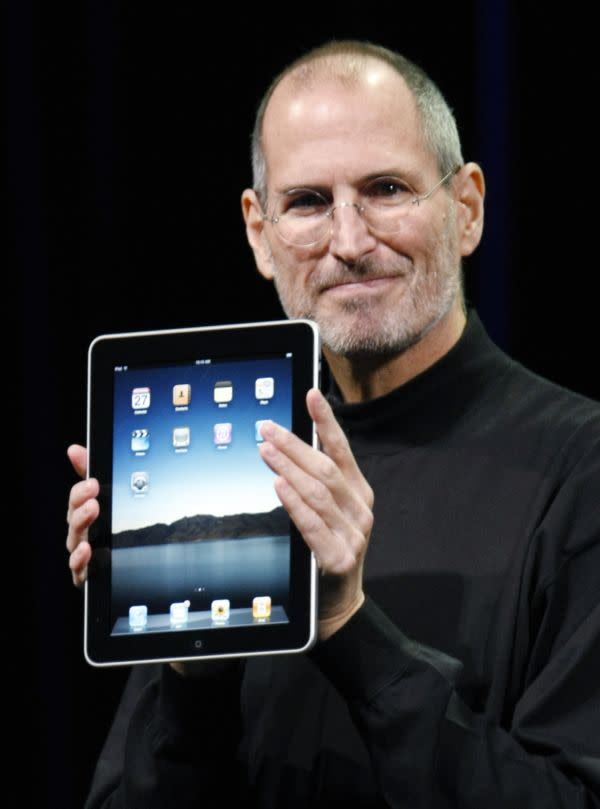 The Cutline
The CutlineWas Steve Jobs really Apple’s editor-in-chief?
For those who've followed Apple, casually or compulsively, Steve Job's resignation as chief executive on Wednesday was not unexpected. But the announcement was nonetheless met with a mixture of shock and sadness.
From the New York Times to TechCrunch to Twitter, tributes to Jobs' legacy as the head of one of the world's largest, most valuable and most influential technology companies poured in.
"Under Jobs, Apple morphed from a struggling niche personal computer maker catering to hipsters and the design industry into a global mass-affluent gadget brand," Yahoo's Daniel Gross wrote. "As it did so, Apple didn't just create wealth for investors who had the foresight to buy the stock when it was in the double digits. Rather, Jobs' genius, and his great contribution, was to create platforms, devices, and economic ecosystems on which other businesses and industries could create new economic arrangements."
"Rarely has a major company and industry been so dominated by a single individual, and so successful," wrote David Streitfeld in the New York Times. "His influence has gone far beyond the iconic personal computers that were Apple's principal product for its first 20 years. In the last decade, Apple has redefined the music business through the iPod, the cellphone business through the iPhone and the entertainment and media world through the iPad. Again and again, Mr. Jobs has gambled that he knew what the customer would want, and again and again he has been right."
"The big thing about Steve Jobs is not his genius or his charisma but his extraordinary risk-taking," Jobs biographer Alan Deutschman told the Times. "Apple has been so innovative because Jobs takes major risks, which is rare in corporate America."
But few--if any--focused on Jobs' unspoken role at Apple: as an editor.
During a 2007 joint interview with Bill Gates at the All Things Digital conference, Jobs described his role in those terms.
"People are inventing things constantly," Jobs said while discussing how Apple determines features for new products, like the iPhone. "The art of it is deciding what's on and what's not on there--the editing function."
"He doesn't market-test anything," Deutschman said. "It's all his own judgment and perfectionism and gut."
Judgment, perfectionism, guts--those sound an awful lot like the qualities of a great editor.
"The editing function," Salon co-founder Scott Rosenberg wrote in a blog post about the 2007 All Things Digital conference. "More than his quickness with a riposte or his 'reality-distortion field' self-confidence, that is Jobs' edge."
"I'd give a lot to have Steve's taste," Bill Gates said. "We sat in on Mac product reviews, where there were questions, I'd see Steve make the decision based on a sense of people and product that's hard for me to explain. It's magical."

